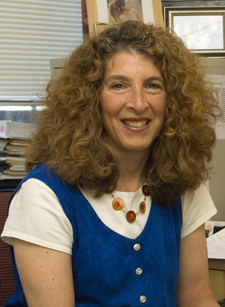College Students Sought for Eating-Disorder Study
One-time, four-hour session examines bone loss, hormonal changes

Because eating disorders are common among the college-aged population — approximately four percent of all college-aged women identify as anorexic, and there are many more that are undiagnosed — Boston University’s Student Health Services is encouraging students to help researchers at Massachusetts General Hospital find new answers about how anorexia and its effects can be treated.
“It has real potential benefit for the student, and at the same time the student is performing a service that will have positive impact for other people in the future,” says Margaret Ross, the director of behavioral medicine at Student Health Services. “It could serve as a turning point for a student who may be on the brink of acknowledging the problem.”
The MGH researchers are seeking low-weight college students and adolescents to participate in a one-time, four-hour study to look at bone loss and other hormonal abnormalities that often occur as a result of the disorder. Participants will undergo bone-density testing, a complete physical, and have their nutrition assessed. At the end of the session, the students will review their results with a clinician, and receive a personalized assessment they can use with their own physicians.
The hope, says Elizabeth Lawson, an endocrinology fellow at MGH and one of the study’s investigators, is that a better understanding of bone-density loss will yield new ways to treat or reverse it.
Lawson points out that anorexia is becoming increasingly common, and is increasingly undiagnosed, and can have serious medical complications. A previous study at MGH, conducted in 2000, found that among 130 women with anorexia, of a mean age of 24, 90 percent of these women had evidence of osteopenia, or bone density that is lower than normal, and more than 40 percent had osteoporosis, or seriously low bone density. “That’s what you’d see in an elderly woman,” says Lawson, “not what you’d expect in a woman in her 20s.”
The research team also discovered that treatment with estrogen did not offset the bone loss for women in their 20s, although the hormone is still being researched as a treatment for adolescents. Other ongoing treatment studies involve insulin-like growth factor 1, a hormone with anabolic effects in adults; bisphosphonates, a drug used to treat osteoporosis, and human growth hormone.
The study is open to low-weight males or females with anorexia, ages 12 to 50. The one-time session takes three to four hours and does not include compensation; participation in other, longer-term studies may be discussed at the time of the evaluation. For more information, contact Erinne Meenaghan at 617-724-7393 or emeenaghan@partners.org.
“It’s a win-win situation,” Ross says. “A bone-density test is expensive, and to have that offered free of charge, with someone to help interpret the results, is a tremendous return.”
Jessica Ullian can be reached at jullian@bu.edu.